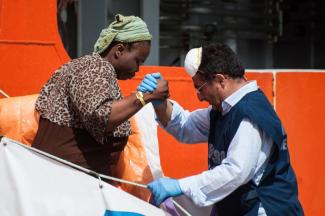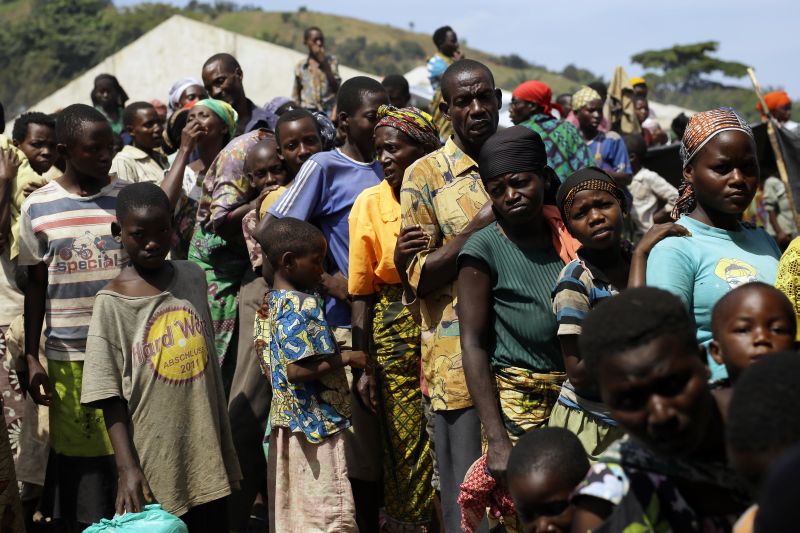ODA
Cross-cutting issues

The budget of the German Ministry for Economic Cooperation and Development (BMZ) has reached a record level. With € 8,5 billion this year, it is about one third larger than it was at the beginning of the parliamentary term three and a half years ago. In total, the government’s ODA expenditure is even greater. In 2015 it amounted to almost twice the current BMZ budget (€ 16,2 billion). ODA spending is set to rise further.
Germany is the world’s second most important ODA donor behind the USA. For the first time ever, the Federal Republic fulfilled the decades old pledge of spending at least 0.7 % of its gross national income on development aid in 2016. Critics have pointed out that this level was only reached because spending on refugees inside Germany counts as ODA. Otherwise, the share would have been only 0.52 % of GNI.
In the next legislative term, Gerd Müller, the minister of economic cooperation and development, wants to achieve the 0.7 % goal without domestic refugee-related expenses. In his view, however, ODA can do more to tackle the root causes of flight and migration. “Hundreds of thousands more would have come to Germany without the helping hand of German ODA, and such aid must be reinforced,” Müller said when the Federal Government’s 15th report on development policy was launched in Berlin in April.
The report is published every four years, elaborating the government’s action in the field of international development and outlining future ambitions. Müller sees the growing world population and climate change as major global challenges that development policy must respond to. His particular concern is to make globalisation fair. A guiding principle of his three and a half years in office so far, according to Müller, has been: “Global markets need rules.”
Focus Africa
Müller points out three new priority areas that the ministry defined under his rule: rural development, education (especially vocational training) and health care. For instance, 14 so-called Green Innovation Centres were set up, helping to improve the economic situation of 800,000 smallholders, as the report spells out. Moreover, the BMZ is promoting a more practice-oriented approach in higher education. An example is the pilot project called “Entrepreneurial Universities in Africa”. Based on lessons learnt from the Ebola epidemic of 2014, the Federal Government came up with a six-point plan for better crisis response.
In bilateral cooperation, Germany mainly focuses on Africa. This is reflected in the “Partnership with Africa” that Germany is promoting under its G20 presidency, and in the “Marshall Plan with Africa” that Müller favours (see D+C/E+Z e-Paper 2017/02, p. 6 and 2017/05, p. 20). Cooperation is meant to be done in partnerships at eye level. In the foreword to the report Müller writes: “The African countries must – like all our partner countries – assume greater responsibility and determine their future autonomously.”
Generally, Müller wants all policymakers to consider sustainability and global development. In his eyes, these are cross-cutting challenges on which all policy areas have an impact – from economics and trade to environmental affairs and agriculture. Foreign and security affairs are affected too. Additionally, he wants to foster private investments and sees the potential for a “much stronger role” of the EU. In any case, the BMZ is not a marginal ministry, but increasingly taking centre stage.










